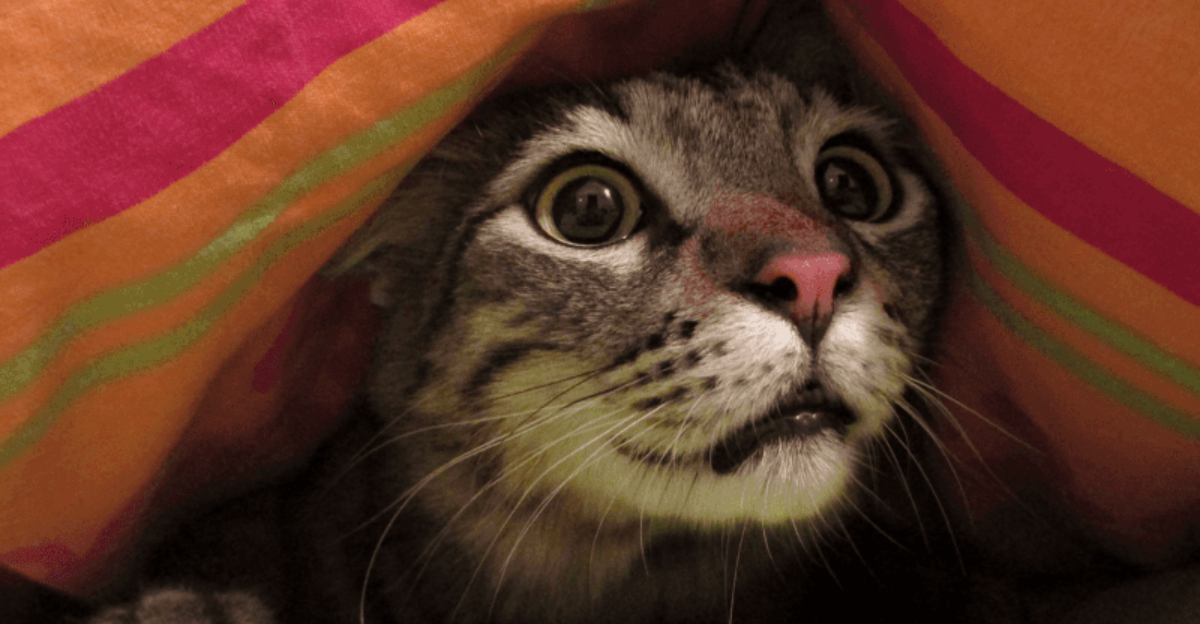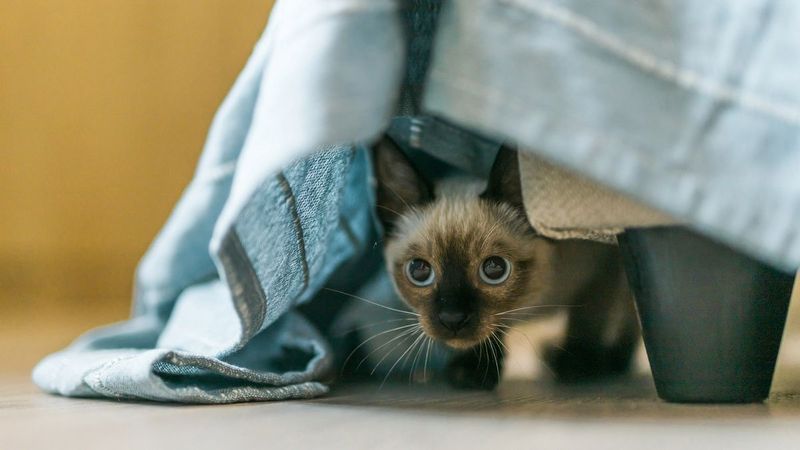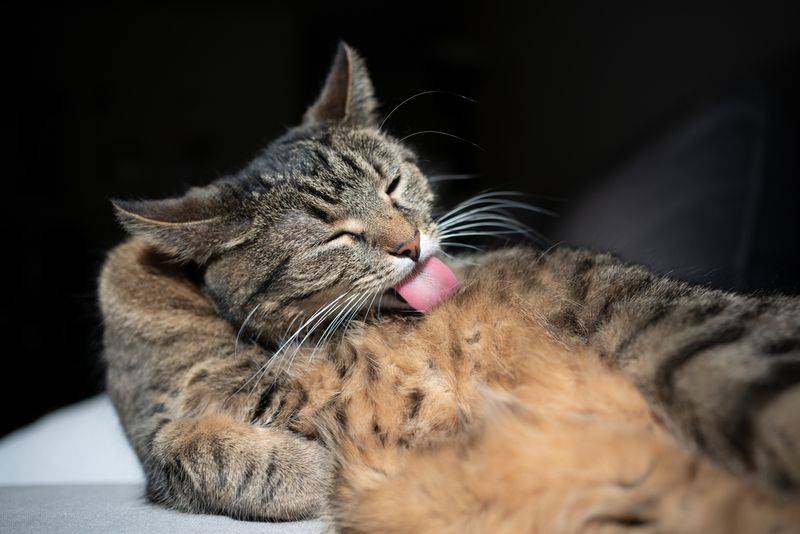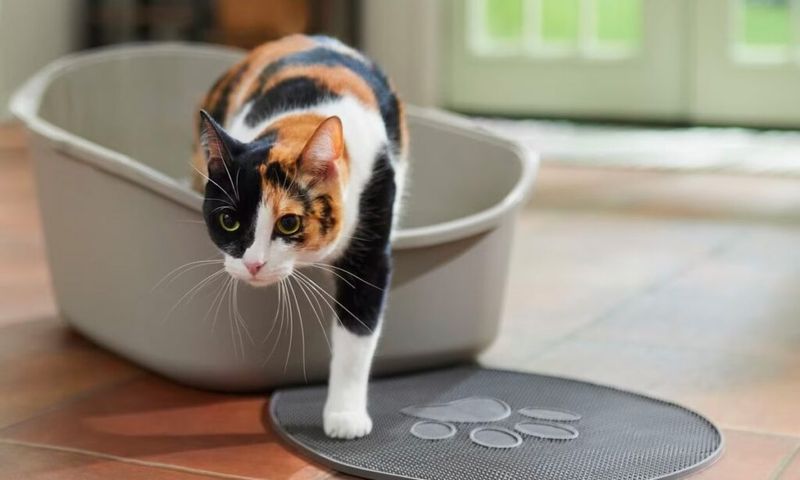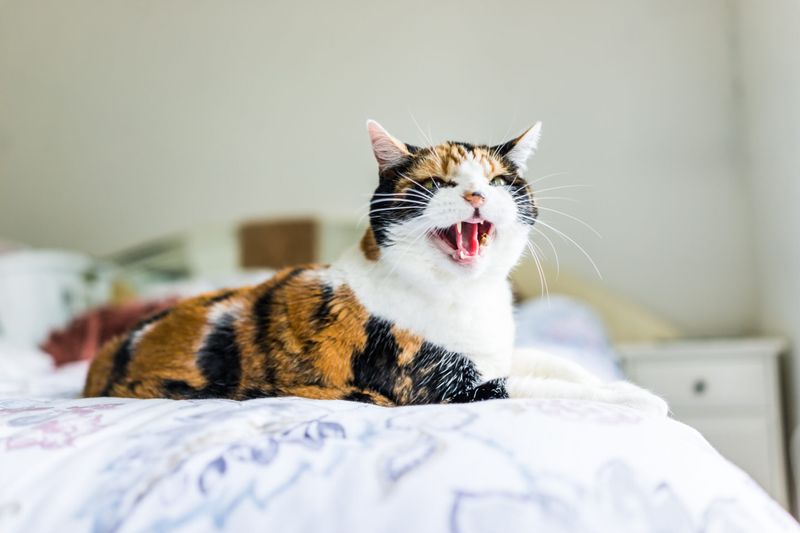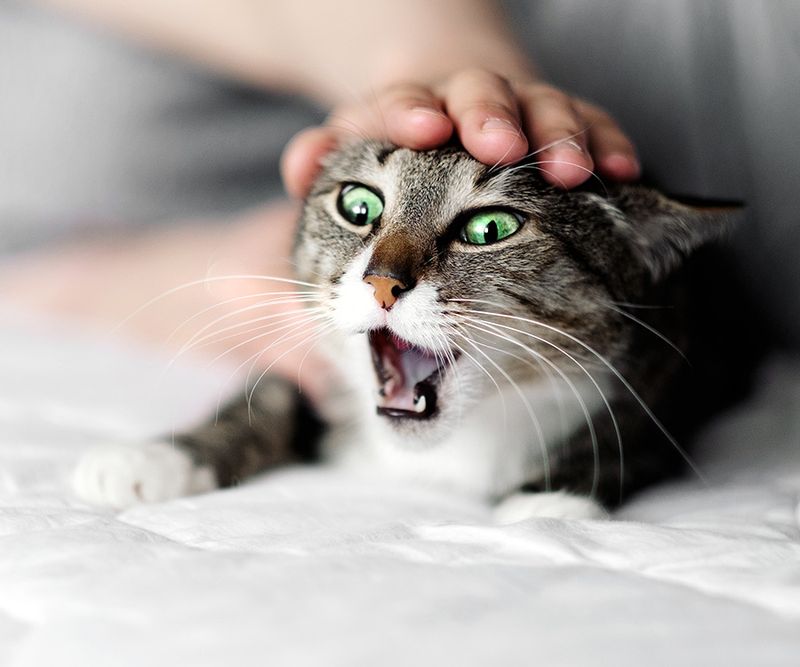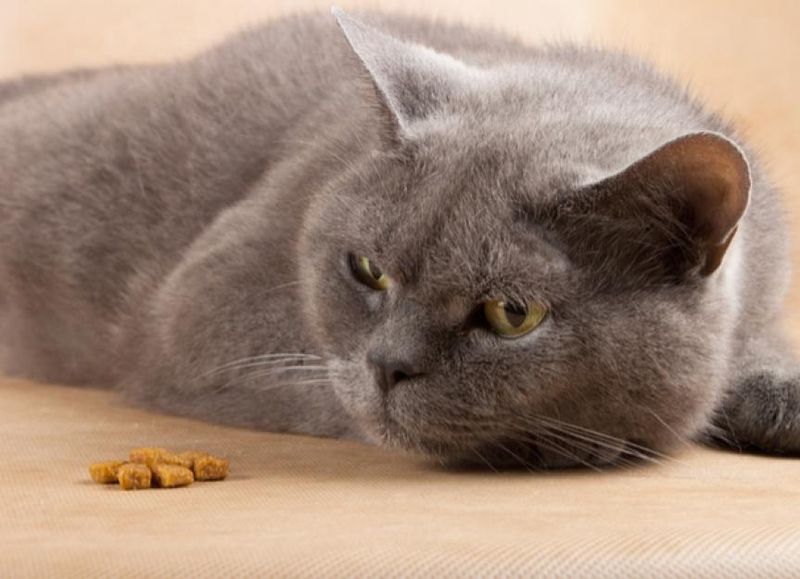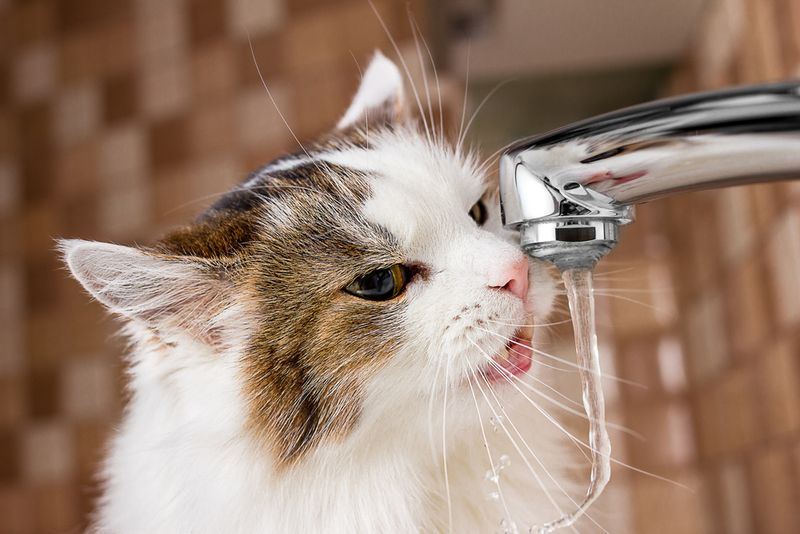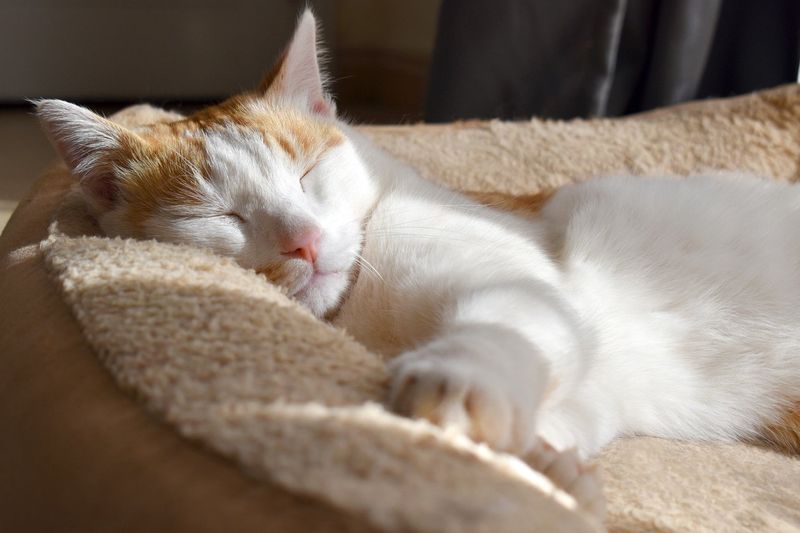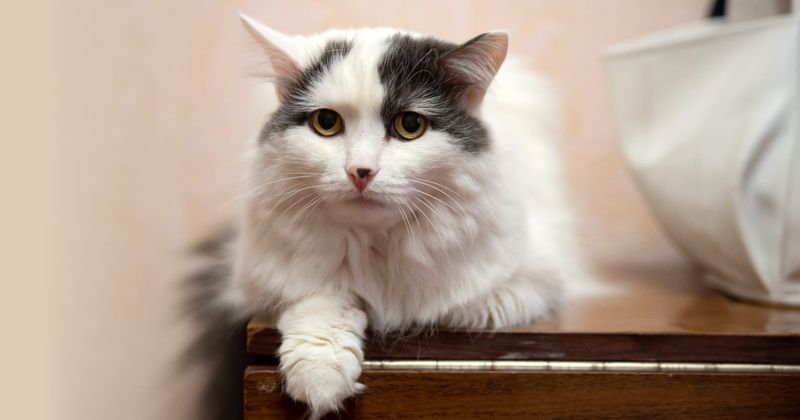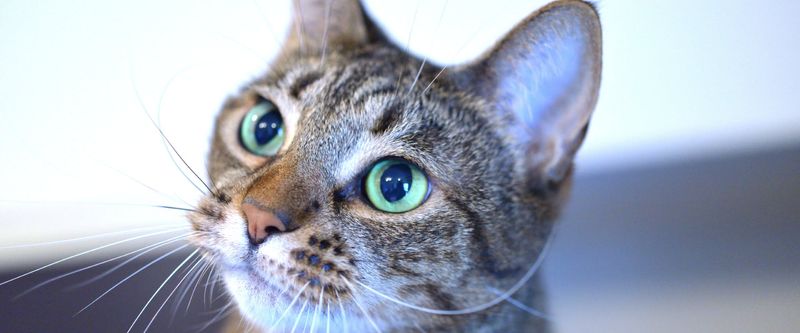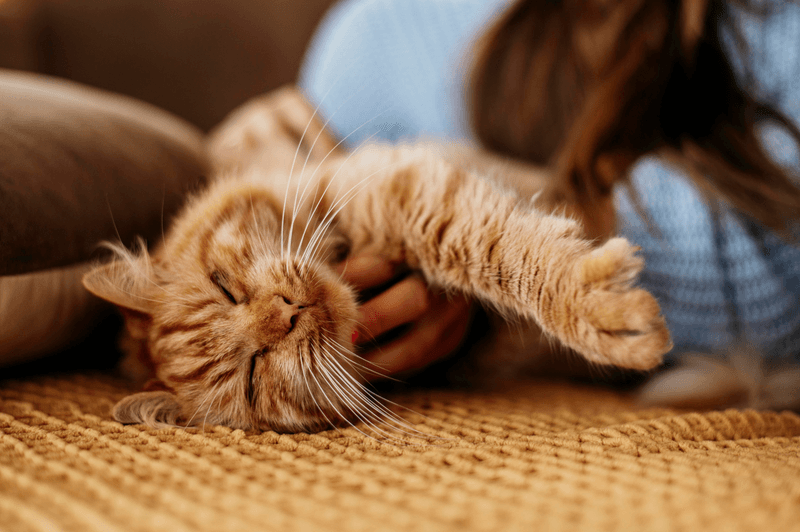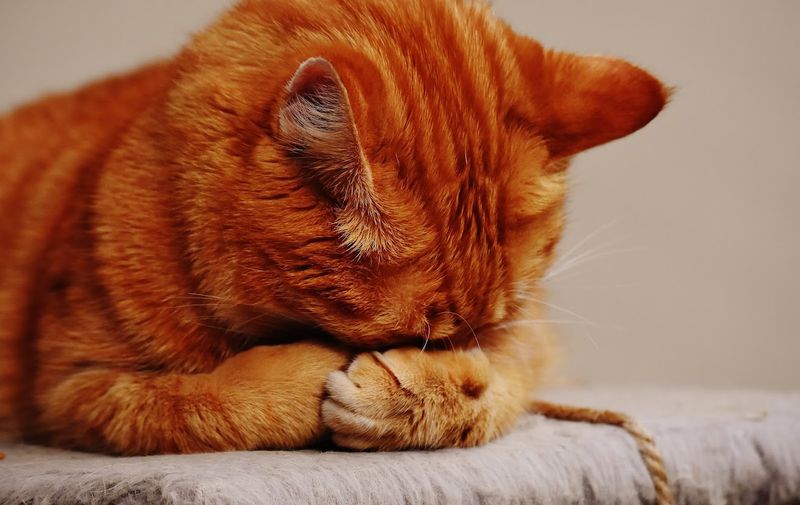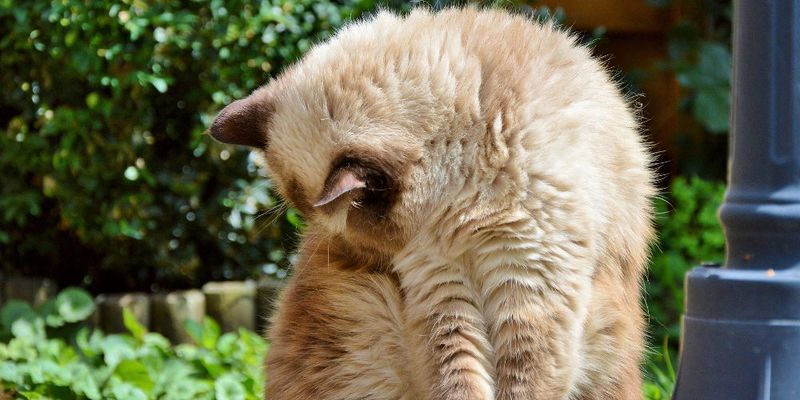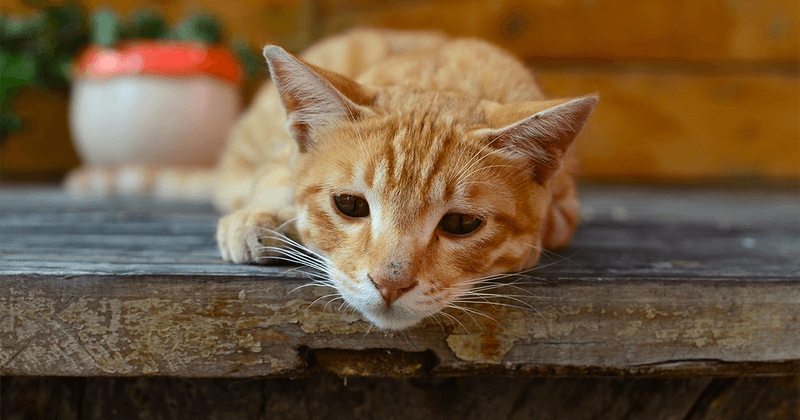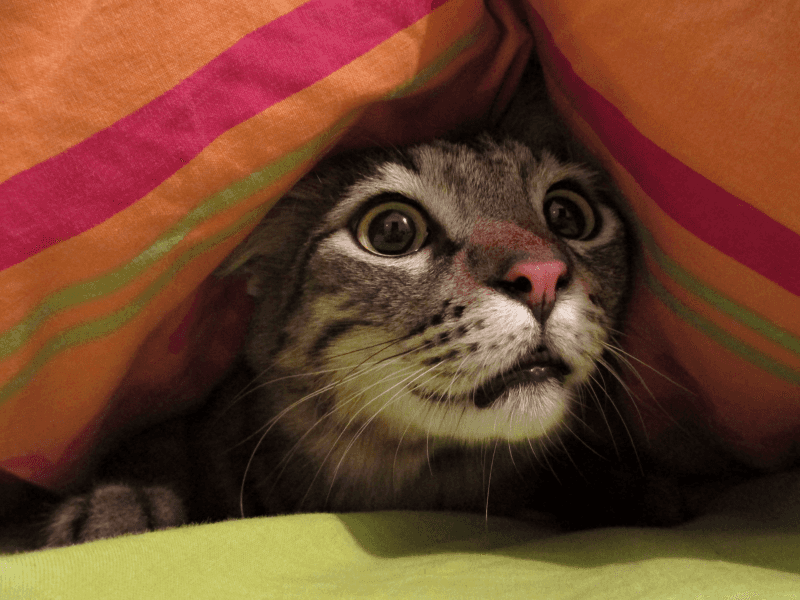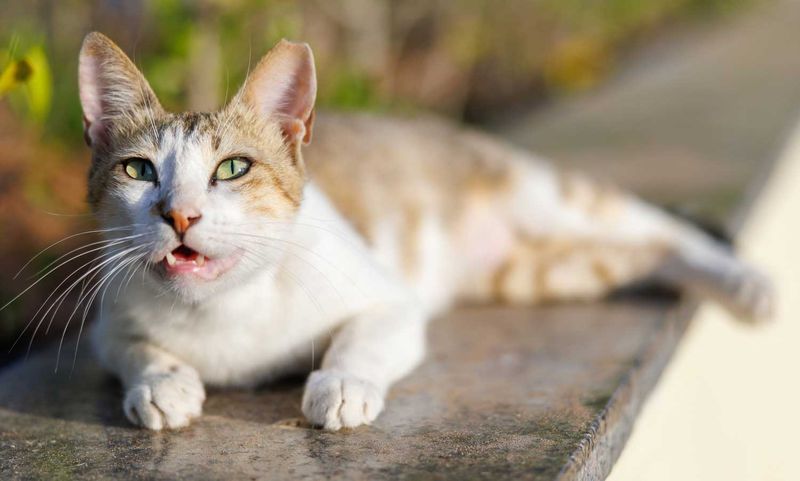📖 Table of Content:
- 1. Sudden Hiding
- 2. Excessive Grooming
- 3. Litter Box Avoidance
- 4. Changes in Vocalization
- 5. Increased Aggression
- 6. Loss of Appetite
- 7. Drinking More Water
- 8. Unusual Sleeping Patterns
- 9. Unexpected Weight Loss
- 10. Bad Breath
- 11. Overly Dilated or Constricted Pupils
- 12. Sudden Clinginess
- 13. Frequent Vomiting
- 14. Neglecting Grooming
- 15. Unusual Lethargy
- 16. Sudden Fearfulness
- 17. Panting or Open-Mouth Breathing
Cats often seem mysterious, yet their behaviors can reveal important information about their health. Even small changes in how they act might indicate underlying medical issues. Paying close attention to these subtle signs is essential for maintaining a cat’s well-being.
Shifts in habits or mood can be early warnings that something is wrong. Because cats tend to hide discomfort, observing every detail becomes crucial. Identifying symptoms promptly can help prevent more serious health problems.
Caring for a cat’s health requires ongoing attention and understanding of its needs. Any behavioral change may signal the need for extra care or a veterinary check-up. This approach helps ensure a long, happy life for the beloved pet.
1. Sudden Hiding
When a cat that usually lounges in plain sight suddenly starts disappearing, curiosity might not be the only thing at play. Cats often retreat to hidden spaces when they’re feeling unwell or stressed.
This behavior can signal pain, fear, or illness simmering below the surface. If your outgoing furball is suddenly a master of disguise, it’s wise to consider making a vet appointment. Even subtle changes in hiding patterns should never be ignored, as early intervention can make all the difference.
2. Excessive Grooming
Some cats love to keep things tidy, but constant licking or biting at their fur can tell a different story. Obsessive grooming sometimes points to allergies or even anxiety in cats.
Bald spots or irritated skin can develop, revealing more than just feline fastidiousness. If your cat is turning into a hair stylist extraordinaire, it’s time to check for underlying triggers and consult a vet. Even emotional stress can leave physical marks when grooming goes overboard.
3. Litter Box Avoidance
Finding your cat’s “presents” outside the litter box could be more than just stubbornness. Medical issues like urinary tract infections or even arthritis may be causing discomfort.
Ignoring the box is often their cry for help, not a rebellion. Cats are creatures of habit, so a sudden change in bathroom routine shouldn’t be brushed off. Investigating the cause early keeps your home—and your feline—happier.
4. Changes in Vocalization
When the house’s usual hush is broken by unexpected meows, chirps, or howls, something might be up. New or intensified vocalizations can hint at pain, confusion, or even cognitive decline in aging cats.
Noisy nights can be especially telling. If your quiet companion becomes a chatterbox, or if the tone of their voice changes, a vet visit is in order. Cats don’t talk for nothing; every sound holds a reason worth listening to.
5. Increased Aggression
That sweet-natured kitty suddenly turning feisty? Aggression can be more than a bad mood; it frequently signals pain or anxiety. Cats sometimes lash out when they’re hurting or afraid.
Pay attention to when and why your cat acts out. Aggressive outbursts that are new or escalating should always be taken seriously. Early assessment can prevent future bites and strengthen your bond.
6. Loss of Appetite
When a feline turns its nose up at dinner, it’s not always picky eating. A sudden or prolonged loss of appetite can be a red flag for many illnesses, from dental disease to organ trouble.
Skipping meals isn’t normal for healthy cats. If their food remains untouched for more than a day, don’t wait to investigate. Hunger strikes in cats are rarely just about taste buds and often require a vet’s expertise.
7. Drinking More Water
Is your cat suddenly making more trips to the water bowl? Increased thirst can be a subtle sign of diabetes, kidney disease, or other metabolic disorders, especially in older cats.
Tracking their drinking habits could reveal early hints of trouble. If you’re refilling water more often, or notice frequent urination, time to alert your vet. Hydration changes always deserve a closer look in the feline world.
8. Unusual Sleeping Patterns
Every cat loves a good nap, but a sudden shift in when or where they sleep could signal trouble. Longer or restless sleep, or choosing unusual locations, may mean your cat is feeling off.
Disruptions in sleep can point to pain, anxiety, or hidden illness. Monitor changes and take note of new patterns. Sleep speaks volumes in the language of feline health.
9. Unexpected Weight Loss
Noticing your cat’s bones a bit more than usual? Gradual or sudden weight loss can be as sneaky as it is serious, pointing to issues like hyperthyroidism or diabetes.
Even a small drop in weight warrants attention if it’s unintentional. Weigh your cat regularly and keep records. When their shape changes without a diet, it’s time to check in with a professional.
10. Bad Breath
Cat kisses shouldn’t smell like a garbage dump. Persistent bad breath can mean dental disease, kidney issues, or digestive problems lurking beneath the whiskers.
A whiff of something foul every now and then is normal, but ongoing odor deserves a vet’s attention. Dental care is as essential for cats as it is for humans. Don’t let stinky breath go unchecked—it could be the start of something more serious.
11. Overly Dilated or Constricted Pupils
Cat eyes are captivating, but when pupils stay unusually big or small, it could mean trouble. Eye problems, pain, or neurological concerns might be the cause.
Pupil abnormalities aren’t just quirky cat traits. They’re signals to look out for, especially if paired with other symptoms. Inspect your cat’s eyes in different lighting to catch these subtle changes early.
12. Sudden Clinginess
Independence is a hallmark of most cats, but a sudden need for constant company raises eyebrows. Clingy behavior may indicate anxiety, pain, or underlying medical issues that have your cat seeking comfort.
If your aloof kitty morphs into a furry shadow overnight, observe for additional symptoms. Changes in sociability, especially when drastic, should prompt further attention. Sometimes, affection carries hidden messages.
13. Frequent Vomiting
Hairballs may steal the spotlight, but routine vomiting is not a normal cat quirk. Repeated episodes can indicate anything from dietary intolerance to more severe gastrointestinal issues.
Track frequency and content, as persistent vomiting can quickly lead to dehydration. When upchucks outnumber hairballs, medical advice shouldn’t be far behind. Your cat’s stomach deserves respect—and attention.
14. Neglecting Grooming
That once-perfect coat turning scruffy? Neglected grooming is a classic sign your cat may be feeling unwell or in pain, particularly among aging felines.
Matted fur, greasy patches, or a dull sheen all point to trouble. When self-care drops off, it’s time to check in on your cat’s comfort and overall health. Even the most meticulous cats need help sometimes.
15. Unusual Lethargy
Even the laziest cat gets bursts of energy. If those are noticeably missing, something could be amiss. Lethargy that goes beyond regular lounging might mean infection, pain, or metabolic problems.
Tune into whether your cat seems unusually withdrawn or inactive, even for their standards. A sudden drop in playfulness warrants a closer look and maybe a quick call to the vet.
16. Sudden Fearfulness
Bravery isn’t always a feline trait, but a sudden spike in startle responses or hiding from ordinary events can spell trouble. New fears may indicate anxiety, pain, or neurological changes.
If your cat reacts to normal sounds or situations as if they’re brand new threats, don’t dismiss it. Fearfulness often hints at deeper discomforts that need attention.
17. Panting or Open-Mouth Breathing
Panting dogs are normal; panting cats, not so much. Open-mouth breathing can signal respiratory distress, heart issues, or heatstroke in felines.
This is a symptom that calls for immediate attention, especially if it’s out of character. Fast or heavy breathing should never be ignored, as it could be an emergency. Your cat’s breath reveals much more than you think.
